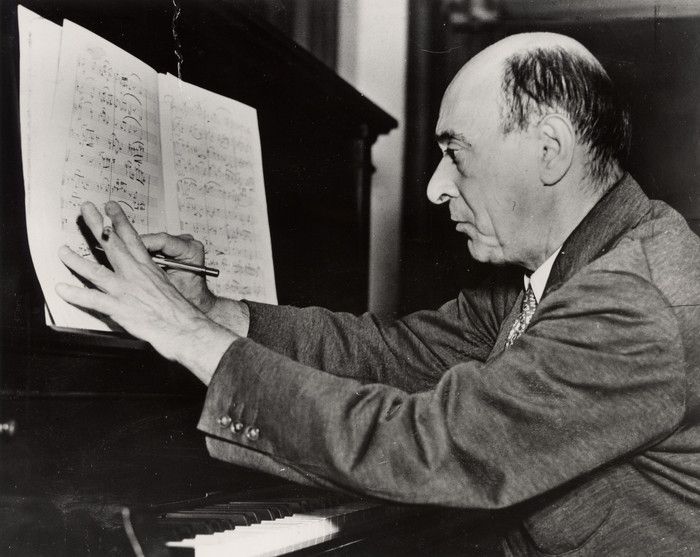Other Organiser
Ensemble concert: music versus barbarism
Dates
Email contact:

Arnold Schönberg
Performers
- oenm. österreichisches ensemble für neue musik
- Samuel Pantcheff (Speaker)
Programme
Arnold Schönberg (1874 - 1951)
Ode to Napoleon Buonaparte for narrator, string quartet and piano op. 41 (1942)
Constantin Regamey (1907 - 1982)
Quintet for clarinet, bassoon, violin, violoncello and piano (1942-44)
Viktor Ullmann (1898 - 1944)
String Quartet No. 3 op. 46 (1943)
Rudi Stephan (1887 - 1915)
Music for seven string instruments (1911)
The works by Schönberg, Ullmann and Regamey brought together here were composed in close proximity during the darkest years of the 20th century. They are documents of an "aesthetics of resistance", to paraphrase Peter Weiss. Schönberg's "Ode" is a commitment to democracy and against tyranny, Viktor Ullmann composed his Third String Quartet in the Theresienstadt concentration camp. The confrontation with persecution and terror also left deep marks on Constantin Regamey's life.
His quintet was composed between 1942 and 1944 during the most difficult years of his life, when he was active in the anti-fascist resistance. It shows him as a composer who speaks an advanced language based on Schoenberg and adapts his twelve-tone method in a way that allows him great stylistic diversity. When asked about this idiosyncrasy, he said: "An artist who is constantly close to death and at the same time aware that his piece is the last and perhaps even the only surviving one, feels challenged to say everything in this one work."
Rudi Stephan's music for seven string instruments is a testimony to early modernism, created by a composer who was one of the strongest talents of the dawning 20th century and who died in the trenches of the First World War near Tarnopol in Galicia in 1915.